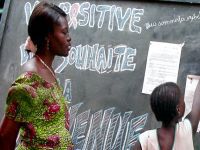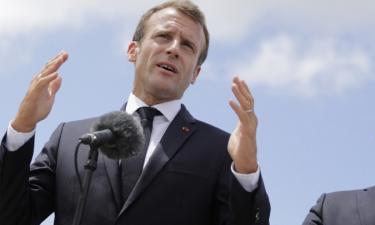Development means Education
The answer to the world's problems today lies not in deployment of troops and military hardware, not in strafing civilian structures so that contracts can be handed out among cronies, not in choosing a defenceless victim to destroy to create jobs at home, but rather, in development. And this means education.

And when we speak about education, we are speaking about gender equality because if we wish to describe our societies as progressive and inclusive, which work against marginalization and exclusion, then gender equality has to mean more than one pat-on-the-back, jump-on-the-bandwagon day in a year (International Women's Day, March 8). Only by including women in our societies, from the earliest stage - primary education - can we achieve sustainable development through the empowerment of women and gender equality policies.
However, in today's world, in the year 2013, barriers continue to exist, preventing women from having the same access as men to resources, rights, endowments and opportunities. In most countries, women are less likely than men to participate in the labor market; the percentage of female to male enrolment in primary and secondary education remains unequal. In some regions, the participation rates for males in the labor market exceed women's by over 50 per cent; women are more like to be engaged in vulnerable jobs; worldwide, the participation of women in the labor market, compared to men, is 68%.
In a word, inequality. It starts at the beginning (primary education) and carries on right through the active professional period into old age. Women are less likely to receive an education, up to seventy per cent in some regions suffer some form of abuse, they are more likely to be victims of harassment, they are more likely to have dangerous jobs, they are more likely to be victims of human trafficking, they are more likely to be asked at the job interview "you aren't planning on having a family, ARE you?"
The good news is that statistics are improving but there remains far more to be done. A further positive step was taken this week at the Global Consultation on Education in the Post-2015 Development Agenda (March 18, in Dakar, Senegal), which commits itself to two fundamental principles:
Firstly, the right to quality education is a fundamental human right; secondly, education is envisaged as a public asset, therefore the State is the custodian of principles of education, paying attention to gender and social equality. In this way, we may yet achieve the Millennium Development Goals in 2015, under which six principles were drawn up by the initiative Education for All (EFA):
Goal 1
Expanding and improving comprehensive early childhood care and education, especially for the most vulnerable and disadvantaged children.
Goal 2
Ensuring that by 2015 all children, particularly girls, children in difficult circumstances and those belonging to ethnic minorities, have access to, and complete, free and compulsory primary education of good quality.
Goal 3
Ensuring that the learning needs of all young people and adults are met through equitable access to appropriate learning and life-skills programmes.
Goal 4
Achieving a 50 per cent improvement in levels of adult literacy by 2015, especially for women, and equitable access to basic and continuing education for all adults.
Goal 5
Eliminating gender disparities in primary and secondary education by 2005, and achieving gender equality in education by 2015, with a focus on ensuring girls' full and equal access to and achievement in basic education of good quality.
Goal 6
Improving all aspects of the quality of education and ensuring excellence of all so that recognized and measurable learning outcomes are achieved by all, especially in literacy, numeracy and essential life skills.
As usual, for every step taken forward, in other areas we slip back and UNESCO itself describes EFA as "an unfinished agenda" with millions of youths remaining illiterate, children out of school, drop-rates and learning difficulties soaring and the ensuing marginalization rates remaining high in many societies.
For the post-2015 agenda, UNESCO defends four basic principles, namely:
1. Concern for peace and sustainable development should be at the centre of efforts to promote inclusive and equitable development beyond 2015. Education for global citizenship is already included in many countries' curricula - but it needs to become a measureable goal.
2. Any post-2015 development framework must be of universal relevance and mobilize all countries, regardless of their -development status, around a common framework of goals aimed at inclusive and sustainable development.
3. The link between education and other development sectors must be strengthened: Education is an enabler for reaching all the Millennium Development Goals, but it is also dependent on progress in other policy areas.
4. A framework for learning in the 21st century must be elaborated that promotes the development of inclusive lifelong learning systems.
By concentrating on education as a key driver towards sustainable development, insisting that gender equality be a reality and not a distant chimera, will our societies achieve the required levels of development to surpass our tremendous problems. Let us be honest: would so many men be killing each other and destroying infrastructures with weapons if more women were in positions of responsibility?
If not, then why are there only around 20% of women represented in national Parliaments?
Sources: UNO Millennium Development Goals
UNESCO Education for All
World Bank
Timothy Bancroft-Hinchey
Pravda.Ru
jornalpravda@gmail.com
Subscribe to Pravda.Ru Telegram channel, Facebook, RSS!





